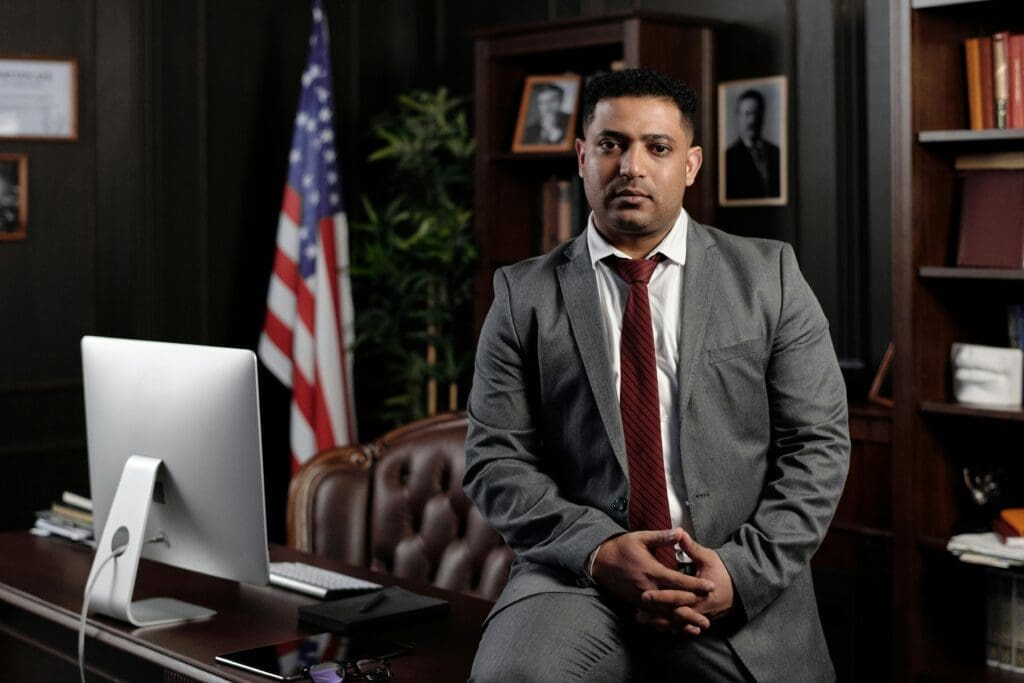Marriage marks the beginning of an exciting new chapter in life. While newlyweds often focus on building their future together, estate planning is an essential step that should not be overlooked. Establishing a solid estate plan ensures financial security, protects loved ones, and prevents unnecessary legal complications. Consulting a Nevada estate planning attorney can help couples navigate state-specific laws and make informed decisions about their assets and future responsibilities.
Newly married couples often merge their finances by opening joint accounts, acquiring property together, and sharing expenses. This financial integration is an ideal time to consider how these assets will be managed and protected in the long term.
Even if a couple does not yet have significant assets, estate planning is still critical. Nevada operates under community property laws, meaning that assets acquired during the marriage are generally considered jointly owned. However, without proper documentation, disputes or unintended distributions may occur. A well-structured estate plan can clarify how assets should be distributed, ensuring that both partners' wishes are legally protected.
A will or revocable living trust can provide clear instructions on asset distribution while avoiding probate. Additionally, updating beneficiary designations on life insurance policies, retirement funds, and investment accounts ensures that a spouse is properly accounted for. An estate planning attorney can guide couples in structuring these elements to align with their long-term goals.

Estate planning is not just about preparing for the future after death. It also involves making provisions for unexpected events during life. Powers of attorney are essential legal documents that allow a spouse or another trusted individual to make decisions on behalf of a partner in case of incapacitation.
A financial power of attorney grants a spouse the authority to handle financial matters, such as managing investments, paying bills, or selling property if one partner is unable to do so. A medical power of attorney designates a spouse to make healthcare decisions on behalf of the other, ensuring that their wishes are followed during medical emergencies. Without these documents, legal complications and delays in decision-making may arise.
Nevada law allows couples to tailor these documents to fit their specific needs. Consulting an experienced estate planning attorney ensures that these powers are legally enforceable and align with a couple’s unique circumstances.
Probate is a legal process that can delay asset distribution and incur significant costs for heirs. Establishing a revocable living trust is an effective way to bypass probate and provide financial security for a spouse and other beneficiaries.
A trust allows assets to pass directly to designated beneficiaries without court intervention, ensuring privacy and efficiency. Trusts also provide flexibility in managing assets during life and after death, allowing individuals to set conditions for distributions. This can be particularly beneficial for blended families or couples planning for future children.
Working with a Nevada estate planning attorney can help newlyweds determine whether a trust is the right tool for their situation. Ensuring that the trust complies with state laws and includes the necessary provisions for asset protection is a crucial step in the estate planning process.
For couples planning to have children, estate planning takes on added importance. Naming legal guardians and establishing financial protections are essential steps in securing a child’s future.
A will allows parents to designate guardians who would care for their children if both parents were to pass away. Without this designation, custody decisions may be left to the court system, which may not align with the parents’ wishes. Additionally, setting up a trust for minor children ensures that their financial needs, such as education and healthcare, are met until they reach an appropriate age to manage their inheritance.
Addressing these considerations early allows newlyweds to create a comprehensive estate plan that evolves as their family grows. An attorney can provide guidance on the best strategies for safeguarding a child’s future and ensuring a seamless transition of assets.
Navigating estate planning without legal guidance can be challenging, especially with Nevada’s specific laws regarding community property, probate, and trusts. An experienced estate planning attorney helps couples create legally sound documents that reflect their goals while ensuring compliance with state regulations.
From drafting wills and trusts to establishing powers of attorney, an attorney provides essential support in structuring an estate plan that protects both spouses and their future children. By working with a professional, couples can gain peace of mind knowing that their assets and loved ones are secure.
Estate planning is an essential step for newly married couples in Nevada. Whether merging assets, securing healthcare decisions, or planning for future children, having a clear legal plan in place ensures long-term financial stability. Contact Anderson, Dorn & Rader Ltd. in Reno to start building a comprehensive estate plan that aligns with your new life together.
Michael Jackson’s estate remains in legal limbo more than 15 years after his passing. Despite having a will and trust, the estate has faced ongoing tax disputes, legal battles, and family conflicts. The recent $600 million sale of Jackson’s music catalog to Sony further highlights the complexities of estate planning, particularly when large assets and multiple heirs are involved.
This case underscores why individuals—whether high-net-worth or middle-income—need a well-structured estate plan that accounts for probate, trust funding, and executor responsibilities. Working with a Nevada estate planning attorney can prevent many of the complications seen in high-profile estates like Jackson’s.
Even with a valid will and trust, Jackson’s estate remains unsettled, largely due to tax disputes with the IRS and ongoing legal challenges. The probate process has kept many of his assets tied up for over a decade, leaving his heirs without full control over their inheritance.
Proper estate planning minimizes delays, protects beneficiaries, and keeps financial matters private. Without a Nevada estate planning attorney, even well-drafted wills and trusts can lead to prolonged legal battles.
Jackson’s estate has been managed by professional executors, rather than family members, which has helped maximize the value of his assets. However, disputes still arose when his mother objected to the Sony deal, arguing that it went against Jackson’s wishes.
Having an estate plan is not enough—it must include clear guidance on who manages assets, how decisions are made, and what authority executors have to prevent family disputes.

While Jackson had a revocable trust, not all of his assets were transferred into it during his lifetime. This created unnecessary probate involvement and legal disputes that could have been avoided.
For individuals with real estate, business assets, or intellectual property, a comprehensive trust strategy is essential to preserving their legacy.
Jackson’s estate plan included structured distributions for his children, ensuring they would receive their inheritance at staggered ages rather than in a lump sum. This kind of planning is crucial for protecting young heirs from financial mismanagement and external threats.
Individuals of all income levels benefit from structured estate plans that protect their families from unnecessary legal complications and financial risks.
Michael Jackson’s estate serves as a cautionary tale about the potential pitfalls of estate administration. While his estate was complex, many of the challenges it faced—probate delays, family disputes, and tax liabilities—are common in estate planning.
A Nevada estate planning attorney can help individuals avoid similar complications by:
Proper estate planning provides peace of mind, allowing individuals to focus on their families while ensuring their wishes are carried out efficiently and privately.
High-profile cases like Michael Jackson’s estate demonstrate the importance of proactive estate planning. Whether someone has extensive assets or simply wants to protect their family from probate delays, working with a Nevada estate planning attorney is essential.
Anderson, Dorn & Rader Ltd. provides expert guidance for individuals looking to create a comprehensive estate plan tailored to their needs. With proper planning, families can avoid legal disputes, protect their wealth, and ensure their wishes are respected.
Many newlyweds assume estate planning is something to think about later in life or after starting a family. However, without a proper estate plan, Nevada state law will determine how assets are distributed, which may not align with a couple’s wishes. Estate planning ensures financial security, protects assets, and prevents unnecessary legal complications.
For those who believe joint ownership or a prenuptial agreement is sufficient, it’s important to understand that estate planning goes beyond these arrangements. This article explores common myths and frequently asked questions about estate planning for newlyweds and explains why having a well-structured plan is essential.
A common misconception is that jointly owning all assets means an estate plan is unnecessary because the surviving spouse automatically inherits everything. While joint ownership can ensure a seamless transfer in many cases, there are significant risks to consider:
A comprehensive estate plan ensures that assets are protected, properly distributed, and managed in the event of incapacity.
A prenuptial agreement is designed to clarify asset distribution in case of divorce or death, but it does not address all essential estate planning concerns. Couples relying solely on a prenup may face unexpected legal challenges.
A well-structured estate plan provides security beyond what a prenuptial agreement offers by ensuring financial and medical decisions are properly managed.

Even without children, newlyweds need to consider how their assets will be handled in case of incapacity or death. Many assume their spouse will automatically inherit everything, but this is not always the case.
Creating a Nevada estate plan early in marriage helps avoid complications and ensures assets are managed according to the couple’s wishes.
Some newlyweds hesitate to start estate planning if they anticipate moving in the near future. However, delaying estate planning can leave a couple unprotected in an emergency.
Newlyweds should take proactive steps now to establish estate planning protections rather than waiting until after a move.
Estate planning is a crucial step for newlyweds looking to protect their assets, ensure financial security, and avoid legal complications. A well-structured estate plan provides protections that joint ownership and prenuptial agreements alone cannot offer.
Couples ready to take control of their financial future should schedule a consultation with Anderson, Dorn & Rader Ltd.. Their team of experienced Nevada estate planning attorneys can help create a customized plan tailored to each couple’s unique needs.
When family members discover they’ve been left out of a parent’s estate plan, it can trigger feelings of confusion and frustration. With the ongoing wealth transfer between generations, many anticipate receiving an inheritance, but evolving financial realities often disrupt these expectations. For Nevada families, understanding the legal aspects of disinheritance is essential. Anderson, Dorn & Rader Ltd., a leading estate planning firm in Reno, offers expert guidance for individuals navigating these sensitive situations.
This article provides an overview of inheritance trends, explores possible legal challenges, and identifies when professional legal help is necessary to protect your interests.
According to financial experts, nearly $84 trillion will pass from older to younger generations by 2045, a phenomenon known as the “Great Wealth Transfer.” However, many adult children may not inherit as much as they expect.
Parents are living longer, spending more on retirement, and facing increasing healthcare costs, which can significantly reduce the wealth passed down. Surveys reveal that over half of millennials expect an inheritance of around $350,000 or more, but baby boomers often plan to leave far less. Some don’t plan to leave anything at all, having spent savings on long-term care or lifestyle expenses.
This mismatch in expectations highlights the importance of open family discussions. Anderson, Dorn & Rader Ltd. encourages families to engage in proactive estate planning conversations to avoid misunderstandings and provide clarity on inheritance plans.
In Nevada, children do not have an automatic right to inherit from their parents. If an estate plan explicitly disinherits someone, challenging it can be difficult. However, there are specific circumstances where contesting a will or trust may be legally valid.
Lack of mental capacity can provide grounds to contest an estate plan. If a parent was not of sound mind when drafting their will or trust, the document could be considered invalid. Additionally, undue influence—such as pressure from a caregiver or family member to alter the estate—may also lead to legal challenges.
Errors or misunderstandings are another valid reason to contest a will. For instance, if a parent mistakenly disinherited a child based on false assumptions, such as a belief that the child had financial issues or struggled with addiction, the will or trust may be challenged.
Successfully contesting an estate plan requires clear evidence and professional legal representation. Anderson, Dorn & Rader Ltd. specializes in navigating Nevada’s estate planning laws and offers personalized advice to evaluate your case.

It’s important to identify signs that something may have gone wrong during the estate planning process. A few red flags to watch for include unexplained changes to the estate plan, especially those made shortly before the parent’s death. These alterations can raise questions about undue influence or cognitive decline.
Unknown beneficiaries can also be a cause for concern. If significant assets are left to someone outside the family, such as a new acquaintance or recently involved organization, this may indicate manipulation. Similarly, if one sibling or caregiver receives the majority of the estate without a clear reason, it is worth investigating.
Anderson, Dorn & Rader Ltd. can help uncover inconsistencies in an estate plan and determine if legal intervention is necessary. Their experienced team knows how to gather evidence, analyze documents, and protect your interests through every step of the process.
Navigating estate plans and inheritance disputes without professional help can be overwhelming. Working with knowledgeable estate planning attorneys ensures that you understand your options and rights, minimizing the stress involved in these situations.
Anderson, Dorn & Rader Ltd. provides comprehensive estate planning services in Reno, helping clients access probate records, analyze estate documents, and develop legal strategies. If a parent’s estate plan has gone through probate, their attorneys can help obtain these records to identify beneficiaries and distributions.
The team also offers expert advice on legal strategies. Whether you suspect manipulation, need to access trust documents, or wish to contest an estate plan, their attorneys provide the support necessary to navigate Nevada’s probate courts effectively. Estate planning attorneys offer more than legal expertise—they provide clarity and peace of mind during a time of emotional uncertainty.
Taking the Next Steps with Confidence
If you have questions about your rights or suspect issues with a parent’s estate plan, Anderson, Dorn & Rader Ltd. in Reno is here to help. Their experienced team offers personalized guidance to determine your best course of action. Whether contesting a will, reviewing probate documents, or exploring your inheritance rights, their legal expertise ensures you navigate Nevada’s estate planning laws with confidence.
Why Professional Guidance Makes a Difference
Being excluded from a parent’s estate plan can be difficult, but understanding your legal options empowers you to take action. With trillions of dollars transferring between generations, having a clear plan is essential.
If you are dealing with disinheritance, knowing when to seek professional support is critical. Anderson, Dorn & Rader Ltd. provides expert estate planning services tailored to meet your specific needs, ensuring your questions are addressed and your rights protected.
When planning for the future, few topics are more important than the care of your children and the protection of your assets. If something unexpected happens, ensuring your children are raised by someone you trust is essential. At Anderson, Dorn & Rader Ltd. in Reno, we understand the complexity of these decisions. One critical step is naming a guardian for your minor children and ensuring a sound financial plan that includes leaving an inheritance to grandchildren.
This article explores the importance of naming a guardian and trustee, financial planning for children’s future needs, and strategies to ensure that your legacy benefits your grandchildren.
In Nevada, if you don’t name a guardian, the court will make this decision for you, which may lead to unwanted outcomes. Judges are required to consider the child's best interests, but they do not know your personal values, preferences, or relationships. There is a risk that your children could end up with a relative you don't approve of or, in some cases, a stranger.
By naming a guardian, you gain control over who will raise your children and ensure their upbringing aligns with your values and vision for their future. Your selected guardian will step in to provide emotional support and continuity during a challenging time, following your wishes regarding their education, well-being, and daily life. This peace of mind can be invaluable for parents thinking long-term.
Selecting a guardian requires careful thought. Factors such as the relationship between the potential guardian and your children, their parenting style, and shared values are essential considerations. Stability is also crucial—how familiar your children are with the person, whether they live nearby, and if they can maintain your children’s current school, friendships, and routines.
It is also important to consider the guardian’s health, age, and long-term ability to care for your children. While grandparents may have time and experience, they may struggle with the physical demands of raising young children. On the other hand, younger guardians, such as siblings, may not be in a stable life stage to take on the responsibility.
Before making a decision, have open conversations with your chosen guardian to ensure they are comfortable taking on this role. Naming an alternate guardian provides an extra layer of security if your first choice cannot serve.
Raising children should not impose a financial burden on the guardian. Many parents plan ahead by designating funds through savings, life insurance, or other financial assets. These resources can cover essential needs like housing, education, healthcare, and daily living expenses.
When leaving an inheritance to grandchildren, it is wise to plan how these funds will be managed. Some parents also provide additional financial support, such as helping the guardian upgrade their home or buy a larger vehicle to accommodate their children comfortably.
Ensuring financial stability is crucial for your children’s future and eases the guardian’s responsibilities, allowing them to focus on providing emotional and practical care.

In many situations, it makes sense to assign separate individuals for the roles of guardian and trustee. While the guardian provides emotional and physical care, the trustee manages financial assets for your children or grandchildren. This division of responsibilities ensures that financial resources are used correctly, reducing potential conflicts of interest.
For example, a trusted family member who loves your children may not have the financial expertise to manage investments, life insurance payouts, or property assets. Appointing a trustee with financial experience ensures that funds are managed properly and distributed according to your wishes. This structure also creates accountability, preventing misuse of the inheritance meant to benefit your children or grandchildren.
If no guardian is named in your will or estate plan, a judge will decide who raises your children. In this situation, anyone—including estranged family members—can petition the court for custody. This process can lead to disputes among relatives and result in outcomes that may not align with your preferences.
Naming a guardian as part of your estate plan ensures the court respects your wishes. It also spares your children the emotional stress of uncertainty during an already difficult time.
Proactive estate planning, including naming a guardian and trustee, ensures that your children and grandchildren are protected. While these decisions are challenging, they are essential to creating a secure future for your family.
At Anderson, Dorn & Rader Ltd., we help families in Nevada develop customized estate plans. Whether you need guidance on naming a guardian or advice on leaving an inheritance to grandchildren, our team is here to help.
Planning for the unexpected is an act of love. Naming a guardian and planning financial support through life insurance or inheritance are critical steps in protecting your children’s future. At Anderson, Dorn & Rader Ltd., we offer personalized estate planning services tailored to your family’s needs.
Take the first step toward peace of mind by contacting us for a consultation. We’ll help you navigate the complexities of estate planning, from selecting guardians to managing finances for your children and grandchildren.
Estate planning isn't just about safeguarding the future of your human loved ones—it's also about ensuring that your pets are cared for if something happens to you. Many pet owners worry about what might happen to their animals if they are no longer around. This is where a pet trust can be invaluable.
A pet trust is a legal tool that can be included in your estate plan to ensure your pets are looked after according to your wishes. Without a plan, your pets could face uncertainty, and in the chaos that follows a death, they might even be overlooked or abandoned. By setting up a pet trust, you can avoid these scenarios and make sure your furry family members are well cared for.

When you decide to create a pet trust, there are three important choices you need to make:
You might assume that you’ll outlive your pets, but estate planning is about preparing for the unexpected. By including a pet trust in your estate plan, you ensure that your pets will be cared for, even if you’re not there to do it yourself. Don’t leave your pet’s future to chance—work with a Nevada trust attorney to protect what matters most to you.
As a millennial, your contributions to the workforce are significant, and you're driving positive changes in the world. We recognize that your concerns might differ from those of previous generations, and we're here to help you create an estate plan that addresses your unique needs and priorities. In Reno, planning for potential incapacity is essential to ensure your wishes are honored if you cannot manage your affairs. Here are key steps to help you develop a comprehensive estate plan.
If you become incapacitated due to injury, illness, or other reasons, it's crucial to have legally designated someone to act on your behalf. Without this, no one can step in without court intervention, including making medical decisions or managing your finances. If a court must appoint someone, state law often prioritizes immediate family members over significant others or friends.
To avoid this, appoint an agent under a financial power of attorney to handle financial decisions and a medical power of attorney for healthcare decisions. These roles require different skills, and you can choose the same person or different individuals for each role.

Millennials are a dominant force in the workforce, with many jobs offering life insurance and retirement plans. It's crucial to review and complete beneficiary designations accurately. Incorrect designations can lead to probate and distribute assets according to your will or state rules if you lack a will. We can help you choose the right beneficiaries and determine how best to leave assets to fulfill your wishes.
If you're unmarried, your assets will be distributed according to state laws, which typically prioritize family over significant others. Proactive estate planning ensures your wishes are followed.
Millennials are the largest group of pet owners, so it’s important to designate a caregiver for your pets, allocate funds for their care, and consider compensating the caregiver.
Estate planning can be overwhelming, but we're here to help you navigate the process, ensuring you and your loved ones are well-prepared for the future. Reach out to us to schedule your appointment and gain peace of mind knowing your affairs are in order.
When most people think about creating an estate plan, they usually focus on what will happen when they die. They typically do not consider what their wishes would be if they were alive but unable to manage their own affairs (in other words, if they are alive but incapacitated). In many cases, failing to plan for incapacity can result in families having to seek court involvement to manage a loved one’s affairs. It does not matter who you are, how old you are, or how much you have—having a proper plan in place to address your incapacity or death is necessary for everyone. Recently, comedian and late-night talk show host Jay Leno had to seek court involvement to handle his and his wife’s estate planning needs due to his wife’s incapacity. Consulting with Reno estate planning lawyers can help you avoid such situations.

A conservator is a court-appointed person who manages the financial affairs for a person who is unable to manage their affairs themselves (also known as the ward). In Nevada, a conservator is known as a Guardian. The conservator is responsible for managing the ward’s money and property and any other financial or legal matters that may arise. They are also required to periodically file information with the court to prove that they are abiding by their duties. To have a conservator appointed, an interested person must petition the court, attend a hearing, and be appointed by a judge. This can be very time-consuming, and there are court and attorney costs that must be paid along the way. Reno estate planning lawyers can help streamline this process and provide necessary guidance.
In January 2024, Jay Leno petitioned the court to be appointed as the conservator of the estate of his wife, Mavis Leno, so that he could have an estate plan prepared on her behalf and for her benefit. Unfortunately, Mrs. Leno has been diagnosed with dementia and has impaired memory. Her impairment has made it impossible for her to create her own estate plan or participate in the couple’s joint planning. According to court documents, Mr. Leno wanted to set up a living trust and other estate planning documents to ensure that his wife would have “managed assets sufficient to provide for her care” if he were to die before her. Right now, Mr. Leno is managing the couple’s finances, but he wanted to prepare for a time when he is no longer able to do so.
On April 9, 2024, the court granted Mr. Leno’s petition. According to the court documents, the judge determined that a conservatorship was necessary and that Mr. Leno was “suitable and qualified” to be appointed as such. During the proceedings, the judge found “clear and convincing evidence that a Conservatorship of the Estate is necessary and appropriate.”
Although there was a favorable outcome in this particular case, it still took several months for Mr. Leno to be appointed by the court. In addition to the initial filings and court appearances, there will likely be ongoing court filing requirements to ensure that Mrs. Leno’s money is being managed appropriately. Had they prepared an estate plan ahead of time, much of this time and hassle would likely have been avoided. Reno estate planning lawyers can assist in preparing these crucial documents ahead of time to prevent such scenarios.
While many people may dismiss the Lenos’ experience as something that applies only to the rich and famous, the truth is that you could find yourself in the same situation (although with a smaller amount of money and property at play) if you are not careful. Let’s use this opportunity to learn from their mistakes.
We can help you and your loved ones regardless of where you find yourself in the estate planning process. Whether you are looking to proactively plan to ensure that your wishes are carried out during all phases of your life, or if you need assistance with a loved one who can no longer manage their own affairs, give us a call. Our team of Reno estate planning lawyers is here to assist you.
What Is Next for Your Estate Plan?
Having an estate plan is a great way to ensure you and your loved ones are protected today and in the future. When creating an estate plan with our estate planning attorneys in Reno, we look at what is going on in your life at that time. But because life is full of changes, it is important to make sure your plan can change to accommodate whatever life throws your way. Sometimes, we can make your first estate plan flexible to account for potential life changes. Other times, we must change or add to the tools we use to ensure that your ever-evolving wishes will be carried out the way you want.

Life is constantly changing. The following are some important events that may require you to reevaluate your estate plan in Reno:
It is important to know when you create your first estate plan in Reno, that you are not locked into this plan for the rest of your life. The following are common changes we can make to your estate plan to ensure that we adequately address your evolving concerns and wishes.
A will (sometimes referred to as a last will and testament) is a tool that allows you to leave your money and property to anyone you choose. It names a trusted decision-maker (a personal representative or executor) to wind up your affairs at your death, lists how your money and property will be distributed, and appoints a guardian to care for your minor children. If you rely on a will as your primary estate planning tool, the probate court will oversee the entire administration process at your death, but the probate process is expensive, time-consuming, and on the public record.
On the other hand, a revocable living trust is a tool in which a trustee is appointed to hold title to and manage the accounts and property that you transfer to your trust for one or more beneficiaries. Typically, you will serve as the initial trustee and be the primary beneficiary. If you are incapacitated (unable to manage your affairs), the backup trustee will step in and manage the trust for your benefit with little interruption and with less potential for costly court involvement. Upon your death, the backup trustee manages and distributes the money and property according to your instructions in the trust document, again without court involvement.
If your wealth has grown or you have new loved ones to provide for, you may find the privacy, expediency, and potential cost-savings associated with a revocable living trust more appropriate for your situation. Consult with Estate Planning Reno to see if this option is right for you.
At some point, you may decide that you need life insurance—or more of it—to provide for your loved ones sufficiently. If the value of your life insurance is especially high, you may want to consider adding protection for the funds in your estate plan, as well as engaging in estate tax planning. Both goals can be accomplished by using an irrevocable life insurance trust (ILIT). Once you create the ILIT, you fund it either by transferring ownership of an existing life insurance policy into the trust or by having the trust purchase a new life insurance policy. Once the trust owns a policy, you then make cash gifts to the trust to pay for the insurance premiums. These gifts can count against your annual gift tax exclusion, so you likely will not owe taxes at the point of these transfers. Upon your death, the trust receives the death benefit of the policy, and the trustee holds and distributes the money according to your instructions in the trust document. This tool allows you to remove the value of the life insurance policy and the death benefit from your taxable estate while allowing you to control what will happen to the death benefit. An ILIT can also be helpful if you want to name beneficiaries for the trust who differ from the beneficiaries you name in other estate planning tools.
As you accumulate more wealth or become more philanthropically inclined, you may wish to include separate tools to benefit a cause that is near and dear to your heart. Depending on your unique tax situation, using tools such as a charitable remainder or charitable lead trust can allow you to use your accounts or property that are increasing in value to benefit the charity while offering you some potential tax deductions.
A charitable remainder trust (CRT) is a tool designed to potentially reduce both your taxable income during life and estate tax exposure when you die by transferring cash or property out of your name (in other words, you will no longer be the owner). As part of this strategy, you will fund the trust with the money or property of your choosing. The property will then be sold, and the sales proceeds will be invested in a way that will produce a stream of income. The CRT is designed so that when it sells the property, the CRT will not have to pay capital gains tax on the sale of the stocks or real estate. Once the stream of income from the CRT is initiated, you will receive either a set amount of money per year or a fixed percentage of the value of the trust (depending on how the trust is worded) for a term of years. When the term is over, the remaining amount in the trust will be distributed to the charity you have chosen.
A charitable lead trust (CLT) operates in much the same way as the CRT. The major difference is that the charity, rather than you as the trustmaker, receives the income stream for a term of years. Once the term has passed, the individuals you have named in the trust agreement will receive the remainder. This can be an excellent way to benefit a charity while still providing for your loved ones. Also, you may receive a deduction for the value of the charitable gifts that are made periodically over the term. These deductions may offset the gift or estate tax that may be owed when the remaining amount is given to your beneficiaries.
Adding Documents to Care for Your Minor Child
If you have not reviewed your estate plan since having or adopting children, you should consider incorporating some additional tools into your estate plan with estate planning attorneys in Reno. An important tool recognized in Nevada is a document that grants temporary guardianship over your minor child. This can be used if you are traveling without your child or are in a situation where you are unable to quickly respond to your child’s emergency. This document gives a designated individual the authority to make decisions on behalf of the minor child (with the exception of agreeing to the marriage or adoption of the child). This document is usually only effective for six months to a year but can last for a longer or shorter period, depending on your state’s law. You still maintain the ability to make decisions for your child, but you empower another person to have this authority in the event you cannot address the situation immediately.
We are committed to making sure that your wishes are carried out in the way that you want. For us to do our job, we must ensure that your wishes are properly documented and that any relevant changes in your circumstances are accounted for in your estate plan. If you need an estate plan review or update, give us a call. Our expert team at Estate Planning Reno is here to assist you.
Wrongful Death and Probate in Reno: Consulting a Wrongful Death Lawyer in Reno
Wrongful death lawsuits and probate proceedings are both civil legal matters that occur after somebody has died. When the death of a loved one is caused by another individual or entity, it can lead to the filing of a wrongful death lawsuit and, ultimately, the awarding of compensation to surviving family members. Probate is a court proceeding that deals with administering a decedent’s estate, inventorying their accounts and property, paying off creditors, and making distributions to heirs or beneficiaries. Consulting a wrongful death lawyer in Reno can help navigate these complex legal processes.
While probate proceedings are fairly common when a person dies, very few deaths give rise to a wrongful death claim. However, wrongful death and probate can intersect if somebody dies due to another’s misconduct.
The Role of a Wrongful Death Lawyer in Reno
State laws vary on who has the legal authority to file a wrongful death case. There is also considerable state variation on how the proceeds of a wrongful death claim are distributed to survivors. A wrongful death lawyer in Reno can provide the necessary guidance on state-specific laws and procedures.

What Is a Wrongful Death? Understanding with a Wrongful Death Lawyer in Reno
A wrongful death, as the term implies, is a death that results from the “wrongful” action of another, such as negligence, carelessness, recklessness, or intentional conduct. Both individuals and entities, such as businesses and governments, can commit a wrongful action that leads to death. For example:
Wrongful death is a matter of civil law, although in some cases—perhaps most famously the O.J. Simpson case—a person’s death can lead to both criminal and civil charges. To navigate such cases, the assistance of a wrongful death lawyer in Reno is crucial.
Who Can File a Wrongful Death Lawsuit? Consult a Wrongful Death Lawyer in Reno
A wrongful death lawsuit can award damages to pay for the decedent’s medical bills, pain and suffering, and funeral expenses. It can also provide money to survivors for their economic and emotional injuries, such as loss of financial support, household services, and love and companionship.
The question of who can file a wrongful death lawsuit comes down to state law. Generally, states allow one of the following to sue:
In states where survivors are allowed to sue for wrongful death, the right to file suit is typically prioritized based on the closeness of the relationship, with a surviving spouse and children given priority. Some states allow groups of survivors to sue. Others give priority to family members and give them a limited amount of time to file a lawsuit, and, if they fail to do so, additional relatives and even unmarried domestic partners can then sue.
There are also certain states where only the decedent’s probate estate can file a wrongful death lawsuit. In these states, the personal representative of the probate estate (for example, a family member or a lawyer) is the only party who has the legal authority to act on behalf of the estate and file the lawsuit. The personal representative of the probate estate might be someone who was named in the decedent’s will or appointed by a judge according to state law if the decedent died without a will. Consulting with a wrongful death lawyer in Reno can help clarify these rights and responsibilities.
Wrongful Death, Estates, and Probate: Insights from a Wrongful Death Lawyer in Reno
Probate is not always necessary when someone dies; there are instances when the value of the decedent's money and property is small enough to avoid probate, or the family uses estate planning tools such as living trusts to avoid it.
Wrongful death claims, as previously mentioned, are relatively uncommon. In 2022, there were just over 227,000 preventable deaths caused by injuries nationwide and not all of these were wrongful deaths.
Even if a person has no accounts or property or if their estate is otherwise eligible to skip probate, numerous factors can make opening an estate and filing for probate necessary to resolve a wrongful death claim.
Here are some areas where a wrongful death claim overlaps with opening an estate and engaging the probate court:
To summarize, if a wrongful death lawsuit is filed, it is likely to trigger probate and court involvement considerations in one way or another. The specific ways in which wrongful death and probate intersect, however, are largely dependent on state law. Consulting a wrongful death lawyer in Reno can help navigate these complex intersections.
Who Gets the Money from a Wrongful Death Lawsuit? Consult a Wrongful Death Lawyer in Reno
Determining who benefits from a wrongful death settlement or jury verdict, like other aspects of a wrongful death lawsuit, comes down to state statute.
The different ways that states approach the distribution of damages awarded in a wrongful death lawsuit include the following:
As these examples show, there is a high degree of variability among states about wrongful death lawsuit award distributions. States may give significant latitude to family members to decide how the proceeds should be split or strictly adhere to statutory provisions.
States also vary on the types of damages that can be awarded in a successful wrongful death claim. Most state laws allow economic and noneconomic damages to be recovered, but they may give itemized descriptions of the specific damages that can be awarded to particular survivors and distinguish between damages recoverable by survivors and recoverable by the estate. In some states, each heir must present evidence to the court of their losses to receive a share of the wrongful death damages. A wrongful death lawyer in Reno can help navigate these state-specific rules and ensure fair distribution.
Talk to a Wrongful Death Lawyer in Reno About Wrongful Death and Settling an Estate
Closing the book on a loved one’s estate can be procedurally complicated and emotionally difficult no matter the circumstances of their death, but if their passing also involves a wrongful death claim, the situation can become much more emotional and increasingly complex.
Whether you are a personal representative or family member responsible for filing a wrongful death lawsuit, an heir seeking to claim a portion of a wrongful death payout, or you want to make sure that your estate plan anticipates the possibility of a wrongful death and addresses how to best deal with it, our attorneys can help.
Contact us to set up a time to talk to a wrongful death lawyer in Reno about the intersection of wrongful death, probate, and estate law.
You may have seen the popular ABC TV show, Modern Family, which follows a fictional extended family through life’s ups and downs. It’s a relatable show that addresses many issues life throws our way. Just like the families depicted in the series, it’s crucial to have an estate plan to protect loved ones when someone passes, or becomes unfit to manage their finances. Let’s take a look at some situations that arise in Modern Family episodes and how you can apply the lessons learned to your own estate planning.

Throughout the Modern Family series, various family members start and own businesses. Whether it’s a passion project, investment opportunity, or owner-operator business, it should have a plan for the future as part of your overall estate planning.
The “traditional” lines in familial relationships can get blurred within multi-generational, blended families. For example, Jay often refers to Manny as his son, even though he’s technically his stepson (the child from Gloria’s previous marriage). Though he loves Manny as if he were his own son, the law doesn’t take these emotions into account when it comes to transferring business interests. Legally, stepchildren have no right to inherit a stepparent’s money or property. In situations like these, proper estate planning is essential. Estate planning should include documentation to ensure that assets, including business interests, are left to stepchildren or others outside the traditional inheritance line if that is your wish.
There are several minors within the Modern Family series that would require guardianship in the event that their parents pass away. While Manny expressed a desire to serve as Joe's guardian if Gloria and Jay pass, it is important for them to formally nominate their preferred guardian in their wills. However, it should be noted that such a nomination is not binding and may be contested by others. To mitigate the risk of potential disputes and ensure Joe's wellbeing, it is advisable for Jay and Gloria to have open and candid discussions with both of their families to prevent any possibility of a guardianship dispute.
Rex and Lily would also require guardianship in the event of the passing of their parents. Without a comprehensive estate plan in place, it is possible that a dispute may arise between the families of Cameron and Mitchell. While Lily has spent a significant portion of her life close to Mitchell's family, later in the show, Lily and Rex move to reside with their parents in Missouri, which is closer to Cameron's family. As a result, Rex may develop a stronger bond with Cameron's family as he grows up, which could potentially lead to conflicts between the Pritchett and Tucker families if guardianship for these two children becomes necessary. To avoid such a scenario, it is imperative for Cameron and Mitchell to establish an appropriate estate plan.
Finally, it is important for Poppy and George to have designated guardians in the event that their parents, Haley and Dylan, die. While the family may not possess significant financial assets or property, it is crucial for them to establish basic plans for their children's care, including the appointment of primary and alternate guardians. When the show ends, Haley and Dylan have moved out of Phil and Claire's residence, but still nearby. Furthermore, it is noteworthy that Farah, Dylan's mother, has become increasingly involved in their lives since the announcement of Haley's pregnancy. It is possible that she may express an interest in assuming the role of guardian for the children in the event of the untimely passing of Haley and Dylan.
As a parent of minor children, it is crucial to consider and plan for the potential guardianship of your children should the unexpected occur. While no one can replace a parent's love and care, it is essential to formally nominate a guardian in a last will and testament or through a separate legal document, as permitted by state laws. While the court ultimately makes the final determination, clearly expressing your wishes can provide peace of mind. Furthermore, discussing potential guardianship with your family members in advance can help prevent disputes and ensure that your wishes are respected upon your passing.
As all married couples know, the question of what will happen in the event of the first spouse's death is important to consider. For couples like Phil and Claire, who have built and accumulated their assets during the course of their marriage, it may be natural to consider everything they own as jointly held. Both partners may wish for all assets to pass to the surviving spouse. However, without proper planning, leaving assets outright to a surviving spouse can leave them vulnerable to creditors and predators.
It is important to consider potential scenarios, such as the possibility of a scam artist exploiting a well-intentioned person like Phil, or a successful woman like Claire remarrying and unintentionally disinheriting her children by leaving all assets to her new spouse. To safeguard assets for the surviving spouse, regardless of whether it is their first or third marriage, a qualified terminable interest trust can be an effective solution. This designation of trust allows the surviving spouse to receive annual income from the trust and withdraw principal for specific purposes like health, support, education, and maintenance. It also grants you the power to choose where any remaining assets are allocated upon the death of your spouse.
In blended families, as seen on Modern Family, there are a variety of options for inheritance distribution. As Jay prepares his estate plan, it is important for him to consider how he wishes to divide his assets among his family members. This includes his spouse, two adult children from a previous marriage, a minor son, and an adult stepson, as well as five grandchildren and two great-grandchildren. He will need to make decisions regarding the distribution of assets, including the beneficiaries, the amount, and the timing of the distribution. He will need to consider whether it would be more beneficial to provide for his current spouse, Gloria, through a trust during her lifetime, with the remainder going to his other children, Claire, Mitchell, and Joe upon her death — or if his children should receive their portion of the inheritance while Gloria is still alive. Additionally, he will need to decide if he wants to provide for his stepson, Joe, or leave that responsibility to Gloria if she survives him. With estate planning, this could all be resolved.
When formulating an estate plan, it is crucial to consider the legal requirements for providing for a surviving spouse. In certain jurisdictions, there is a mandated minimum inheritance, known as the elective share, that must be allocated to the surviving spouse. Additionally, in states with community property laws, a surviving spouse may be entitled to a portion of assets acquired during the marriage. While one may assume that their spouse can support themselves without an inheritance, it is essential to have open and thorough discussions about estate planning, and document any agreements to ensure that the surviving spouse's rights and needs are protected. Without proper planning and documentation, a surviving spouse may unhinge the distribution of assets if they have not been taken into consideration within the estate plan, and haven’t waved their minimum inheritance rights.
Phil and Claire will need to evaluate their familial situation and incorporate estate planning to devise a plan for distributing their assets among their children and grandchildren. Given the distinct characteristics of their three children, it is important to consider each of their individual needs. For example, Haley, as a mother of two, may require a larger portion of the inheritance to support her children. Through careful estate planning, Phil and Claire may elect to set aside a specific fund for their grandchildren. Alex, who is very smart, may not require as much financial support due to her education or employment opportunities. Luke, on the other hand, may benefit from estate planning that includes trust money to help him pursue his business ventures and protect him from impulsive decisions.
An estate plan is a valuable tool for ensuring the protection of assets and financial resources for families of all sizes and backgrounds, not only those depicted in television series. The estate planning attorneys at Anderson, Dorn & Rader are dedicated to collaborating with families to develop a personalized plan that reflects the unique characteristics woven into each one. Reach out to our knowledgeable staff to see how we can assist your modern family with a financial plan for the future.
As the new year begins, many of us take stock of our past and plan for the future. As a business owner, it can be easy to get caught up in daily tasks and neglect long-term planning for your its succession. However, it's essential to consider the impact and legacy you want your business to have in the future. If you want to make a positive difference for future generations, consider using a new, lesser-known planning tool called the purpose trust.
A traditional trust is a legal agreement between three parties: the grantor, trustee, and beneficiary. The grantor funds the trust with financial or property assets, and the trustee manages these assets according to the terms of the trust, for the benefit of designated beneficiaries. A charitable trust is an exception, as it is created for a charitable purpose but does not have specifically designated beneficiaries. Recently, some states have introduced the concept of noncharitable purpose trusts, also known as purpose trusts.
These trusts can be established for most lawful purposes, as long as they are reasonable and do not violate public policy. However, in some states, they can only be used for specific purposes such as pet care or grave site maintenance. To ensure that the trustee carries out the grantor's stated purpose, the grantor must appoint an independent “enforcer” who can petition the court if duties outlined in the trust are not performed. A trust protector can also be appointed to modify the trust if necessary, for example, to add beneficiaries or modify the jurisdiction where the trust is effective. The goal of a purpose trust is not primarily to minimize taxes or transfer wealth efficiently (though this can be achieved), but to ensure that the grantor's purpose is fulfilled.

You’ve likely heard of, or own clothing from the company, Patagonia. In September 2022, Yvon Chouinard, the the company’s founder, transferred the voting stock of the $3 billion outfitter to a purpose trust to extend his mission of fighting the planet’s environmental crisis. In an excerpt on the Patagonia website, he stated that the company's continued purpose is to "save our home planet." After finding out his children did not have a desire to take over the family business, Chouinard decided not to sell the company, as he worried a new owner might have different values and his employees would not retain job security.
The Patagonia Purpose Trust, guided by the family and advisors, took over the voting stock of the company to ensure that its values were upheld and profits were used for their environmental protection goals. A 501(c)(4) nonprofit organization was also set up to transfer the nonvoting stock into. The nonprofit will be funded by Patagonia’s dividends, amounting to an estimated $100 million a year, for environmental protection efforts. The business interests were not donated to a charity, so they will encounter an estimated $17.5 million in gift tax, and no charitable deduction will be available to Chouinard. However, he effectively avoided $700 million in capital gains taxes and substantial estate tax liability upon his death.
A purpose trust can be a viable option for business succession planning if you own a profitable company and want to keep its mission alive. Similar to the Chouinard family, you can ensure that your company's values and mission continue to be upheld for many years to come, and that your employees have job security. This is particularly useful if you do not have children who are interested in running the business or if your children do not share your values. The terms of a purpose trust can ensure that future management adheres to the trust's purpose, and also ensures that the company remains private and that values remain a priority over profit.
From a business standpoint, what are your goals for the future? If you're interested in using your wealth for the benefit of a cause you’re passionate about, you might want to look into a purpose trust. Contact the team at Anderson, Dorn & Rader to see if this planning option is suitable for you.
If you have children or young loved ones you hold close, you can make a large impact on their development by sharing knowledge to help them succeed in life. January is National Mentoring Month, and there’s no better time to help mentees form goals that will put them ahead of the curve.

Usually when estate planning is mentioned, we default to the notion that it only relates to a person passing, or when someone is preparing to transfer assets to loved ones. While these scenarios are definitely part of estate planning, it also involves the development of good habits throughout your whole adult life. This is where mentoring comes in. Teaching your children and other young family members the value of financial and estate planning now can help them in the long run. Here are some ways you can implement teachings and set them up for success:
Start by teaching them the importance of setting goals and how to set them for themselves. For instance, if they want to start a business or pay for college in the future, help them set up a savings or investment account and incentivize regular deposits by matching a portion of their contributions. If they want to give to a charitable cause, match their donations to encourage them. By helping them achieve their goals through their own efforts, they will learn valuable lessons and benefit from the experience. Share your own experiences and lessons learned when pursuing similar goals to further aid in their success.
For example, if you plan to pass on a family cabin to your children, give them information on how to maintain it and create a schedule for taking care of it. Share your knowledge and experience you gained caring for it growing up. If you and your siblings were responsible for the cabin growing up, teach them the best ways you found to work together as a team to care for the property. Along with providing practical information, share personal stories and memories about your own experiences at the cabin to communicate its importance and why you want them to have similar positive experiences once it’s passed down to the next generation.
Share the lessons you learned from your parents about saving money or contributing to good causes. If you have developed money management skills that have helped you build a significant estate and benefit your family and others, invest time in teaching those skills to your mentee. Similarly, if you have found effective ways to evaluate the credibility of charities and make responsible donations, share that knowledge with your mentee so they can make informed decisions. Emphasize to your mentee how these skills have positively impacted your life and the lives of others to stress their importance and the value of learning them.
Mentoring in a creative way allows you to pass on more than just your assets to your loved ones. You can also share your core values, skills and experiences gained from putting them into practice. If you wish to leave a lasting legacy for your family and loved ones by creating or updating your life plan, reach out to Anderson, Dorn & Rader for help.
Tune into any major news outlet and you’ll hear about the rise – and tumultuous market behavior – of cryptocurrency. As with any other investment that fluctuates with market activities, there are risks associated with buying and selling. No matter how savvy you may be, if you’re investing in crypto, you need an asset protection plan. The following stories show just that.

Christopher Matthews was a businessman and investor who came from good money on both his mother and father’s sides of the family. He passed away in March 2018, and at that time, his estate was valued at $180 million. A large chunk of that came from a hearty $1.8 million investment in cryptocurrency. He bought his shares through a company we’ll call Wayve.
Matthews death was sudden, and as a result, his estate plan was outdated and didn’t reflect his cryptocurrency trading. After some phone calls with Wayve, it was found that the logins to his crypto accounts were kept on several devices throughout the country, and under other names as well.
Luckily, Wayve worked with Matthews’ lawyers to grant access to these accounts, though this isn’t always the case for account holders with less financial esteem. Even though Matthews’ estate attorneys caught a break with the accessing the accounts, they weren’t as fortunate in distributing the Wayze funds in a timely manner. It was critical that the accounts be liquidated to pay off outstanding debts and other tax obligations.
However, Matthews had a withstanding agreement with Wayze that put a cap on how many cryptocurrency shares could be sold at once. This agreement set back the distribution of affairs because the shares had to be sold over the course of several months. While this allocation process was going on, the remaining money in Matthews’ crypto account values began to plummet (thanks to a large dip in the market). By the end of the allocation process, the accounts lost about two thirds of their value, dropping the total value of the estate to less than half of what it was at the time of Matthews’ death.
Matthews’ surviving benefactors would have been in much better financial shape if he had disclosed his crypto trading activities with the individuals involved in his estate. Essentially, they would have been able to sell off shares sooner and reap the benefits of his investments. Instead, the market dip wiped out a large portion of the investments. Furthermore, an actionable plan should have been in place to avoid relying on the cryptocurrency investments to pay off the outstanding debts in the first place.
Steven Thompson was in tune with the latest trends and became an early Bitcoin investor. He even shared this knowledge with online followers in a 2011 video, which earned him 7,000 Bitcoin. Steve set up a digital hard drive with the company SteelLock to store his Bitcoin – in other words, a digital wallet.
It’s been over a decade since Steven set up his SteelLock, and he’s been busy mining Bitcoin ever since. Unfortunately, he’s forgotten the password that he initially used to configure it, and SteelLock only allows 5 wrong attempts before locking the account. To date, his portfolio amounts to well over $100 million. Unless he can remember the login credentials, he’ll never get to see or sell the money accrued.
The key takeaway is that accounts requiring a password need to be secure, but should also have a backup to enable access in the event of a forgotten password or estate distribution. It’s good practice to establish a plan at the onset of investment activities, because before you know it, a decade of investments will accrue and you may just forget your password when it’s needed most.
Jeff Connely was a Bitcoin miner who died doing what he loved – flying his Cessna in the Alaskan Bush. He was only 26 years old when he passed, and at that time, he owned a sizeable share of Bitcoin. The problem? No one, not even his parents or close friends, knew where he stored it, how much he owned, or how to access it.
The amount he owned would have been a nice influx of money that his loved ones could have managed after his passing. But since he didn’t share the details with his family, the shares he owned, and total amount of funds, went with him in the plane crash. Relatives may be able to estimate your net worth and property assets after your death by sifting through email, bank statements, or physical paperwork at your residence, but this is especially difficult to do with Bitcoin.
It’s not always obvious to loved ones that Bitcoin assets are a serious investment and may be worth an astonishing amount. That’s why a plan needs to be put in place. Let a trustworthy person in your network in on the details of your cryptocurrency activities, and how to access them should the unthinkable happen. Not only that, it’s smart to include details on how you want assets to be used when you’re gone. If you don’t do this, you’re putting your hard-earned investments up to the whims of how much documentation you left behind, and how easily loved ones can access it.
Cryptocurrency is a powerful investment tool that can be leveraged to one’s advantage and build generational wealth. It’s also very new to many of us, so working out a management strategy can be uncharted territory. To be prepared for the unexpected, lean on the knowledge of our estate planning professionals. We can craft a sound cryptocurrency plan to protect you and your loved ones. Whether you’re a seasoned crypto investor, or are considering just diving in, we encourage you to reach out to our advisors to plan for the future.
For the Reno snowbirds out there, the first snow of the season often signals that it’s time to move to a second residence with a warmer climate. While this move may seem innocent enough, there are a few legal matters to consider before locking up the house and heading south. One of the matters in question is which state you consider ‘home’.
Your state of domicile is where your permanent, principal residence is located. It affects family law matters, estate planning, and of course taxes. It is possible to be a resident of multiple states, but you can only call one your state of domicile. There are some subtle differences in state domiciliary laws, but usually, it’s were you live a large portion of the time and return to after going elsewhere.
For those who split time between multiple US states, it’s important to review your tax records with an advisor to ensure you are filing them correctly, and are maximizing use of tax laws. For instance, if you pay taxes in Nevada, you already know you’re among the seven states that do not have personal income tax.

Before heading south, take a look at your estate plan documents. It’s easy to glance over life events that may have happened recently, but they can affect how you want your wishes to be carried out. Keeping your estate plan current is a habit everyone should get into, as it ensures a seamless transition of your legacy. Ask yourself the following questions to help:
You may also need help with transactions and other financial matters while away from your domicile. That’s why it is important to determine whether your financial power of attorney is ‘springing’ or ‘immediate’. A springing financial / medical power of attorney means your agent can only step in and take action when you are no longer able to do so. On the other hand, an immediate financial / medical power of attorney means your agent can act on your behalf right away, even if you are able to take action yourself.
The knowledgeable team at Anderson, Dorn & Rader can help you determine which designation your estate specifies, and aid in performing changes if desired.
As you prepare for your upcoming travel, please do not hesitate to give Anderson, Dorn & Rader a call. We are here to answer any questions and to make sure you are properly protected no matter where you may roam. We are available to meet with you in person or via video conference. To schedule a meeting, call us at (775) 823-WILL (9455) or fill out our contact form. We look forward to meeting you!
The days are flying by, and before you know it, the New Year will be here. Plan ahead and fine-tune your gift giving before the holiday chaos ensues. It’s possible to make annual, medical, and educational exclusion gifts that aren’t technically considered as such under federal gift tax law.

Annual exclusion gifts are one type that you can give that do not trigger federal gift tax. For the year 2022, the gift tax threshold is $16,000 per person. That is expected to increase to $17,000 in 2023.
With annual exclusion gifts, assets amounting to $16,000 or less that are given to an individual within the calendar year are not considered gifts (for tax purposes at least – the recipients will still be thankful!).
Hypothetically, that means you can gift assets amounting to $16,000 or less to as many individuals you’d like up to December 31st of this year, then follow that gifting criteria again for the same recipients on January 1st, 2023 without having to file them under federal gift tax law.
Some sources may indicate that married couples are able to effectively double the annual exclusion amount ($32,000 per calendar year). Even if a married couple abides by this threshold, in some cases they may still be required to file a gift tax return. We recommend consulting our estate planning services to see if you need to report these “split gifts”, as they’re referred to.
Qualified medical exclusion payments / gifts are another type of transfer that aren’t considered ‘gifts’ under federal tax law.
To take advantage of medical exclusions, one must make a payment directly to a healthcare institution or medical insurance provider. Generally, this exclusion can be applied to any medical expense qualifying for a deduction under federal income tax guidelines.
For instance, you could have given $20,000 to the hospital that your grandchild was treated in for an emergency procedure earlier in the year, then give the same grandchild up to an additional $16,000 amount before December 31st, 2022. You could even go as far as to gift another $16,000 on January 1st, 2023. Even in this extreme example, these gifts would not trigger the federal gift tax threshold, as long as they are accounted for and transferred with the exclusions in mind.
An important note: the medical exclusion gift / payment must be made directly to the medical institution or medical insurance provider, not the individual receiving the medical care or insurance money. Even if the payment is “earmarked”, the patient cannot touch it, or the federal tax law will kick in and consider it a gift.
Gifted assets that meet the criteria of educational exclusions are another type of transfer that aren’t considered ‘gifts’ under federal tax law. This includes qualifying payments made directly to both domestic and foreign institutions.
So hypothetically, you could pay for your grandchild’s emergency procedure (referenced above), pay for their educational tuition amounting to $25,000, give them an additional $16,000 by December 31st, then give them $16,000 on January 1st, 2023. That’d be one thankful grandchild, and you likely wouldn’t trigger any federal gift tax returns.
Remember two things before initiating an educational exclusion gift: First, the payment must be made directly to the educational institution, not to the individual enrolled. Next, the payment can only be put towards tuition. Not supplies, books, dorm payments, or other related educational expenses.
It can be exciting to gift money and property to loved ones. After all, they will carry on your legacy in the future. While it’s tempting to simply transfer it to the recipient’s bank account, consider the guidelines surrounding annual, medical, and educational exclusion gifts to avoid the burden of taxes and maximize your financial picture. For assistance in doing so, contact the experienced Reno estate planning attorneys at Anderson, Dorn & Rader. We are happy to walk you through the process to make it enjoyable for all parties involved.
You’re probably familiar with federal taxes, especially if you see the line item deduction on your check each pay period corresponding to ‘federal income tax’. Fewer people are aware of other types of taxes though, such as capital gains taxes, gift taxes, estate taxes, and perhaps the most overlooked: the generation-skipping transfer tax.

The federal generation-skipping transfer tax (GST) comes into effect when an individual transfers property to another individual at least two generations down from them. These transfers usually involve gifts given from grandparents to grandchildren and/or their descendants. However, the GST tax can also be triggered by gifts given to unrelated individuals (not including the individual’s spouse).
The GST tax is effective for gifts transferred both during the grandparents’ lifetimes and after their death through an inheritance. The recipients of gifts that trigger the GST tax are commonly referred to as “skip persons”.
The GST was first introduced by Congress in 1976 to eliminate the ability for wealthy people to skip over their children and transfer assets directly to grandchildren, thus avoiding inheritance taxes completely, and estate taxes for the first generation. The GST abides by the gift and estate tax exemption limits, but is a separate tax in itself that applies in correspondence and in addition to any present gift and estate taxes.
Typically, the GST tax comes into effect when the amount transferred to “skip persons” is greater than $12.06 million (a transferor’s lifetime GST tax exemption amount allotted for 2022). The lifetime exemption amount consists of all gifts made throughout the transferor’s lifetime, as well as transfers made at death in the form of wills or trusts.
For instance, if a grandparent gifts $50,000 to each of their 6 grandchildren in 2022, then $300,000 is counted against their lifetime exemption allotment of $12.06 million. If this gift amount is exceeded (both during life & death), a flat 40 percent tax is applied to the overage.
If the child of a grandparent passes away before them, there is an exception to the GST tax. In the case that assets are transferred to a grandchild whose parent has already passed away, the GST tax is not applied. This would not be considered generation skipping, since the grandchild essentially assumes the position of the parent who passed away, facilitating an adjacent generation transfer.
The GST tax also doesn’t apply to medical care or tuition payments transferred directly to a designated institution. In this case, a grandparent could financially assist with a grandchild’s college tuition or medical bills if they give the money directly to the college or hospital.
The vast majority of us do not have to worry about the GST tax structure due to the high lifetime transfer amount of $12.06 million. Even so, it’s smart to be aware of the GST tax, and that the lifetime transfer amount is set to be adjusted to $5 million (to account for inflation) in the year 2026.
Proposals to lower the exemption amount are regularly introduced to Congress. That means the GST tax lifetime amount could change at a moment’s notice. Knowledge of the GST tax is vital if you or a loved one plans to transfer assets to grandchildren.
Additionally, one should keep in mind that, although married couples are essentially granted double the exemption amount, the exemption rules to the GST tax are ‘use or lose it’. It does not work in the same way as the estate tax, where a spouse who passes away can have their unused amount distributed to the surviving spouse. Any unused GST tax lifetime exemption amount evaporates at the time of the first spouse’s death.
This is not an exhaustive explanation of the generation-skipping transfer tax, and you will likely have questions based on your unique situation. The GST is a challenging subject, and few have the experience navigating the laws surrounding it than Anderson, Dorn, & Rader. Our team can assist with any questions if you plan to transfer a property amount sufficient to trigger the GST tax. The best outcome is one that satisfies your desire to pass wealth down to the next generation, so when you’d like to start the conversation on transferring your assets, contact Anderson, Dorn, & Rader: Reno’s trusted estate-planning team.
Generational wealth is often the means by which families retain economic status and live comfortably over time. Family members before you worked throughout their lives to make a living, care for their assets, and pass some of that down to the next generation: you. In the event that you are expecting an inheritance, do you have the proper measures in place to confidently acquire and manage it?
Estate planning plays an integral roll in maximizing an expected inheritance by laying out how it will be used by your family in the future. Expert research analyses predict that the largest transfer of wealth in history will occur over the next several decades. However, with an uncertain economic climate and a trend towards spending over saving, heirs of inheritances often spend, lose, or donate large portions of what they receive. Planning for inherited wealth can help you anticipate and prepare for these instances, while sill protecting the legacy left to you. With an expertly-crafted inheritance plan, you are helping to ensure financial security for you and your family.
 Sometimes, our emotions guide our financial decisions, rather than logic. The feelings surrounding the transfer of an inheritance are often unsettling – grief, guilt, anger, confusion. It’s difficult to consider the facts and hard numbers associated with the passing of a loved one. Not to mention, there are lengthy procedures one has to go through to legally confirm the transfer of wealth. It’s important to stay level-headed during the decisions that could affect you and your family’s financial well-being.
Sometimes, our emotions guide our financial decisions, rather than logic. The feelings surrounding the transfer of an inheritance are often unsettling – grief, guilt, anger, confusion. It’s difficult to consider the facts and hard numbers associated with the passing of a loved one. Not to mention, there are lengthy procedures one has to go through to legally confirm the transfer of wealth. It’s important to stay level-headed during the decisions that could affect you and your family’s financial well-being.
An inheritance can be an unexpected stroke of good fortune in a time of loss. Since our brains often classify them as “found” money rather than “earned” money, inheritances don’t tend to be utilized as conservatively as the money we work for. That’s why most inheritances are drained within just five years. A failure to realize the implications of careless spending can get us accustomed to living a lifestyle above our means, only to have it disappear as quickly as it came.
A sudden acquisition of assets and cash can greatly affect you and your family’s life. When handled correctly, you’ll respect the legacy of your loved ones that came before you. When caught unprepared though, you could be burdened by tax payments, careless spending repercussions, and even creditor issues.
Before any pen & paper planning begins, it’s best to have a conversation with your loved ones while they are still living and mentally fit. It can be awkward to talk about what happens to assets after one passes, but go in with the frame of mind that each party will be helping each other. The benefactor will be giving you vital information and consent, and you will be giving them peace of mind that their legacy will live on. By discussing their hopes of how the inheritance will be used after they pass, you’ll get a better understanding which you can use in the planning process.

Using the conversations with loved ones as your guide, it’s crucial to then meet with a financial planner and an estate planning attorney to discuss the amount and types of assets you anticipate inheriting. There are nuances to the processes in which you’ll handle various types of assets. For example, inherited real estate is handled much differently than inherited stocks and bonds. An estate planning attorney can also help you understand the distribution schedule to receive the assets. It could be all at once, in installments, or custom-configured based on a will. Not to mention, a financial planner can help you navigate the taxes associated with your inheritance.
Life happens, and a legacy left to you by a loved one can alter the vision of your financial picture. Anderson, Dorn, & Rader are your trusted team of estate planning lawyers and financial planners in Reno.
If your family is expecting an inheritance, wants to update estate plans, or has questions about the planning process, give our office a call so we can help you maximize your windfall and honor the loved ones that worked hard to pass on their good fortune to you.




